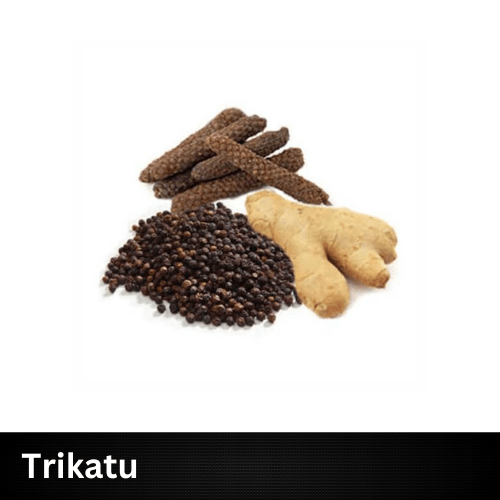In Ayurveda, Chitrakadi is often used to treat digestive problems such as bloating, gas, constipation, and indigestion. It is also said to have a calming effect on the mind and body, and may be used to relieve stress and anxiety.
It is important to note that while Chitrakadi is widely used in traditional Ayurvedic practice, there is limited scientific research on its effectiveness and safety. As with any alternative or complementary therapy, it is always best to consult with a healthcare professional before using Chitrakadi or any other Ayurvedic preparation.
Other Names of Chitrakadi / Chitrakadi
10 Benefits of Chitrakadi / Chitrakadi
- Improving digestion: Chitrakadi is said to help improve digestive function and relieve symptoms such as bloating, gas, constipation, and indigestion.
- Supporting liver function: Chitrakadi is believed to support liver function and promote the elimination of toxins from the body.
- Relieving stress and anxiety: The calming effect of Chitrakadi on the mind and body may help relieve stress and anxiety.
- Improving respiratory health: Chitrakadi is said to have expectorant properties that can help relieve congestion and improve respiratory health.
- Boosting immunity: Chitrakadi is believed to have immune-boosting properties that can help the body fight off infections and disease.
- Relieving joint pain: Chitrakadi may help relieve joint pain and stiffness associated with conditions such as arthritis.
- Supporting healthy skin: Chitrakadi is said to promote healthy skin and may help relieve skin conditions such as rashes and itching.
- Improving mental clarity: Chitrakadi is believed to have a calming effect on the mind that can improve mental clarity and focus.
- Relieving headaches: Chitrakadi may help relieve headaches and migraines.
- Supporting overall well-being: Chitrakadi is believed to have a balancing effect on the body and mind that supports overall well-being.
It is important to note that while these benefits are commonly associated with Chitrakadi in traditional Ayurvedic medicine, there is limited scientific evidence to support these claims. As with any alternative or complementary therapy, it is always best to consult with a healthcare professional before using Chitrakadi or any other Ayurvedic preparation.
Which type of Chitrakadi / Chitrakadi
- Chitrakadi Vati: This is a tablet form of Chitrakadi, which is taken orally. It is made from a mixture of herbs and other natural ingredients, such as chitrak (plumbago zeylanica), pippali (long pepper), and haritaki (terminalia chebula).
- Chitrakadi Gutika: This is a soft, pill-like form of Chitrakadi that is also taken orally. It is made from a mixture of herbs and other natural ingredients, and may also include ghee and honey.
- Chitrakadi Powder: This is a powder form of Chitrakadi that can be added to water or other liquids to make a drink. It is made from a mixture of herbs and other natural ingredients, and may also include ghee and honey.
- Chitrakadi Syrup: This is a liquid form of Chitrakadi that is taken orally. It is made from a mixture of herbs and other natural ingredients, and may also include ghee, honey, and sugar.
It is important to note that the specific ingredients and preparation of Chitrakadi may vary depending on the manufacturer and the specific product. Always read the label and follow the instructions carefully, and consult with a healthcare professional before using Chitrakadi or any other Ayurvedic preparation.
Name of Chitrakadi / Chitrakadi
Flavor Of Chitrakadi / Chitrakadi
Chemicals found inHoloptelea Integrifolia Planch / Chirbilva
The exact composition of the chemicals found in Holoptelea integrifolia Planch can vary depending on several factors, including the location, growing conditions, and the part of the plant used (leaves, bark, roots, etc.). Some of the phytochemicals commonly found in this plant species include:
- Tannins: Holoptelea integrifolia Planch contains tannins, which are a class of compounds known for their astringent and anti-inflammatory properties.
- Flavonoids: This plant species also contains flavonoids, which are compounds known for their antioxidant and anti-inflammatory effects.
- Saponins: Saponins are also present in Holoptelea integrifolia Planch, and they are compounds that have been shown to have antifungal and anti-inflammatory properties.
- Alkaloids: Alkaloids are naturally occurring compounds that have a wide range of biological activities, including anti-inflammatory and analgesic effects.
- Phenols: Phenols are compounds found in Holoptelea integrifolia Planch that have antioxidant and antibacterial properties.
It is important to note that these are just some of the chemicals found in Holoptelea integrifolia Planch, and the specific composition of this plant species may vary depending on the location and growing conditions. Additionally, the chemical composition of the plant may change during preparation and processing, so it is important to consult with a healthcare professional before using Holoptelea integrifolia Planch or any other Ayurvedic preparation.
Tags
- #Chitrakadi
- #HerbalMedicine
- #AyurvedicRemedy
- #NaturalHealing
- #TraditionalMedicine
- #GastrointestinalHealth
- #DigestiveAid
- #Detoxify
- #HerbsForHealth
- #HerbsForHealth
- #AlternativeMedicine
- #HerbalRemedy
- #PlantBasedHealing
- #HerbsOfIndia
- #AncientRemedies

